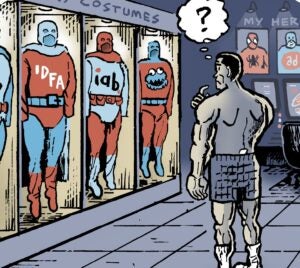Affiliate marketers are largely overlooking what could be one of their best-performing channels: apps.
Although most retail marketers say they generate hardly any app installs from their affiliate programs, the reality is quite different, said Mike Jaconi, CEO and co-founder of mobile commerce marketing company Button.
App users are more loyal, more likely to make purchases and they convert roughly three times higher for retailers on average than users acquired through the mobile web.
But affiliate has historically underperformed on mobile because of two interrelated issues.
Most publishers don’t have the deep-linking infrastructure in place to track users when they move between the web and apps, so they focus on web conversions and therefore can’t claim credit for lucrative leads on mobile.
If people were able to move more seamlessly between web and app experiences, there’d be more opportunities for conversion and customer retention.
It’s hard to quantify the exact amount of revenue lost by not measuring app traffic, said Paul Stewart, global head of strategic partnerships and innovation at Awin, a global affiliate network with around 14,500 retailers and more than 200,000 active publishers.
Around eight years ago, 20% or less of Awin’s traffic was on mobile devices. Today, it’s the predominant traffic source, and a lot of that has been a “black hole” in terms of measurement, Stewart said.
“We know publishers are driving value for apps, but if retailers can’t measure it they’re probably putting budget in the wrong places and ignoring some of the publishers they should be embracing,” he said. “Rather than forcing people into web experiences, we should be able to track alongside whatever experiences the consumer wants.”
In July, Button released a tool called Reach that combines deep-linking and app-tracking technology to support affiliate network traffic.
Typically a mobile link leads to a mobile web page rather than to an in-app destination, even if they already have the app in question downloaded on their device. Reach gives users who click on a link the opportunity to either install the app if they don’t have it or they’re taken directly to the in-app destination if they do. The affiliate network is credited and the retailer can see that the app conversions came through a specific blog or site.
Awin, which first started working with Button more than two years ago, recently made Reach available to all of the retailers and publishers on its network. Using the tool, one of Awin’s brand partners saw 50% higher performance on its app affiliate traffic compared to standard mobile web affiliate traffic
“The ability to move between apps and the web and between apps and other apps without any hindrance – that’s a very natural fit with affiliate marketing,” Stewart said.
And also valuable to brands seeking more efficiency in their marketing as the pandemic drags on. Affiliate is poised for “a bit of a renaissance” in a down economy, Jaconi said.
“It’s a more durable channel for uncertain economic times, because it allows marketers to invest more in generating these profitable acquisitions,” he said. “That’s something on every CMO’s priority list but, frankly, many don’t even know that this is a real possibility for the app channel.”















